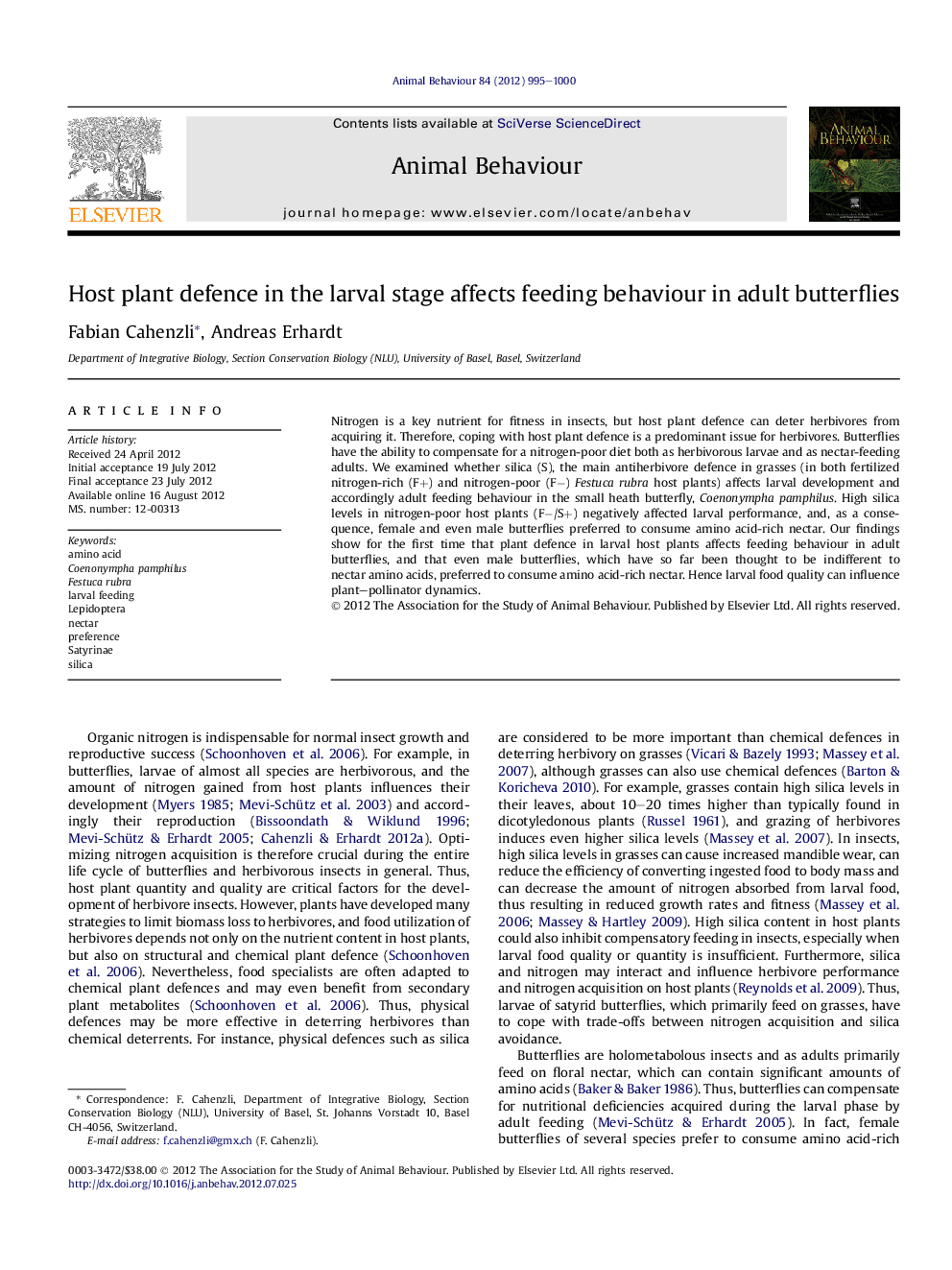| کد مقاله | کد نشریه | سال انتشار | مقاله انگلیسی | نسخه تمام متن |
|---|---|---|---|---|
| 2416538 | 1104279 | 2012 | 6 صفحه PDF | دانلود رایگان |

Nitrogen is a key nutrient for fitness in insects, but host plant defence can deter herbivores from acquiring it. Therefore, coping with host plant defence is a predominant issue for herbivores. Butterflies have the ability to compensate for a nitrogen-poor diet both as herbivorous larvae and as nectar-feeding adults. We examined whether silica (S), the main antiherbivore defence in grasses (in both fertilized nitrogen-rich (F+) and nitrogen-poor (F−) Festuca rubra host plants) affects larval development and accordingly adult feeding behaviour in the small heath butterfly, Coenonympha pamphilus. High silica levels in nitrogen-poor host plants (F−/S+) negatively affected larval performance, and, as a consequence, female and even male butterflies preferred to consume amino acid-rich nectar. Our findings show for the first time that plant defence in larval host plants affects feeding behaviour in adult butterflies, and that even male butterflies, which have so far been thought to be indifferent to nectar amino acids, preferred to consume amino acid-rich nectar. Hence larval food quality can influence plant–pollinator dynamics.
► Silica in low nitrogen grass disrupted butterfly larval compensatory feeding.
► Larval host plant defence triggered amino acid preference in adult butterflies.
► Females and even males preferred to consume amino acid-rich nectar.
Journal: Animal Behaviour - Volume 84, Issue 4, October 2012, Pages 995–1000